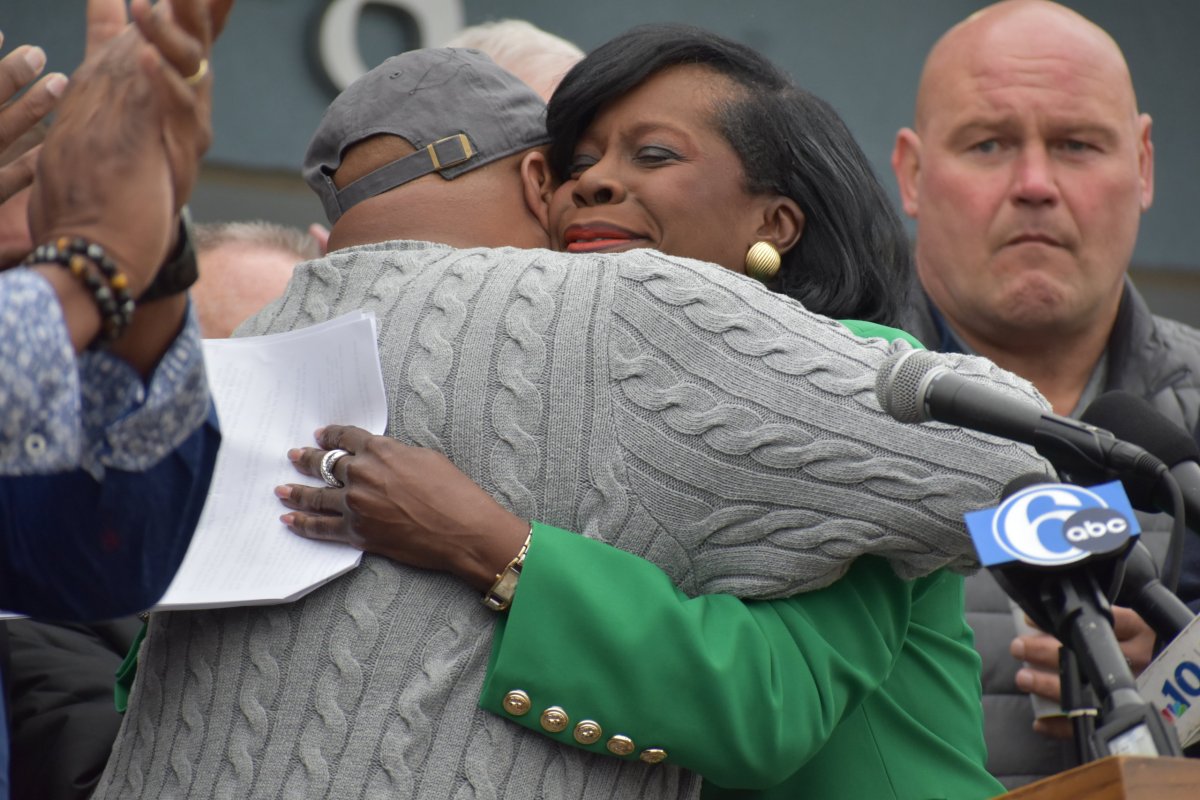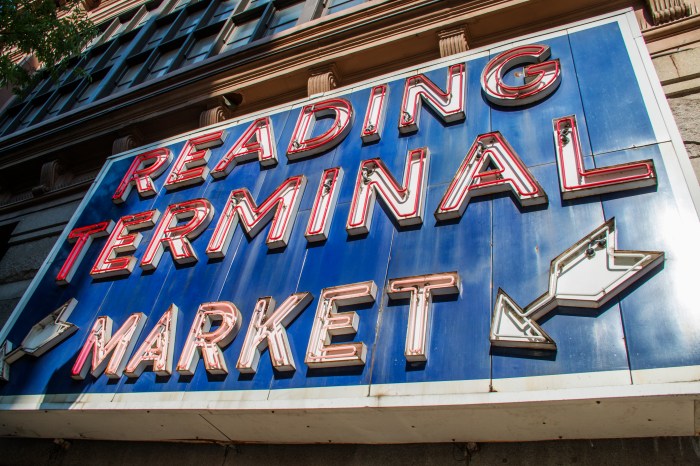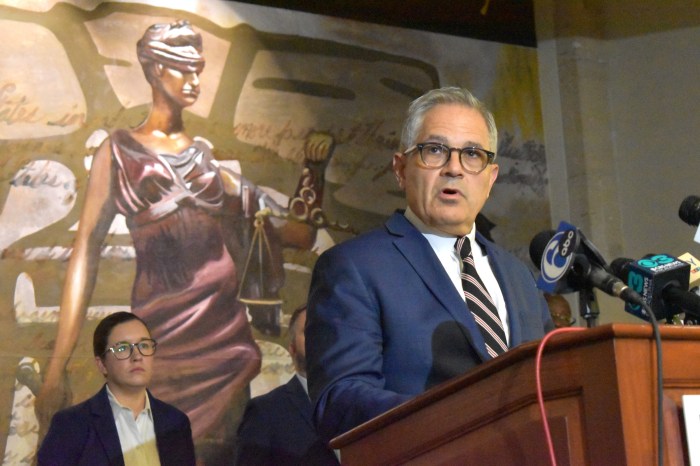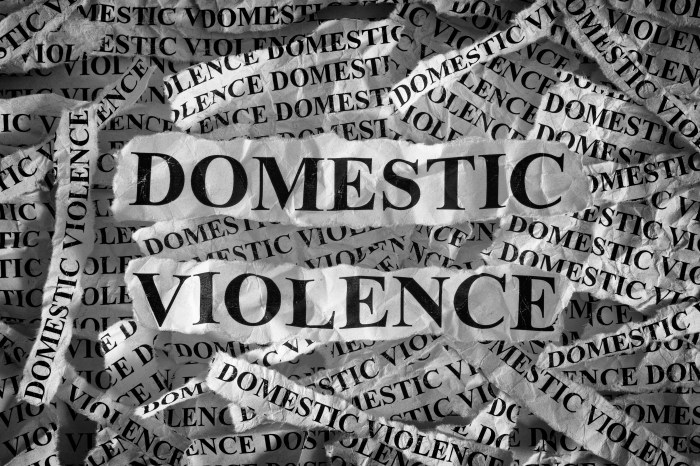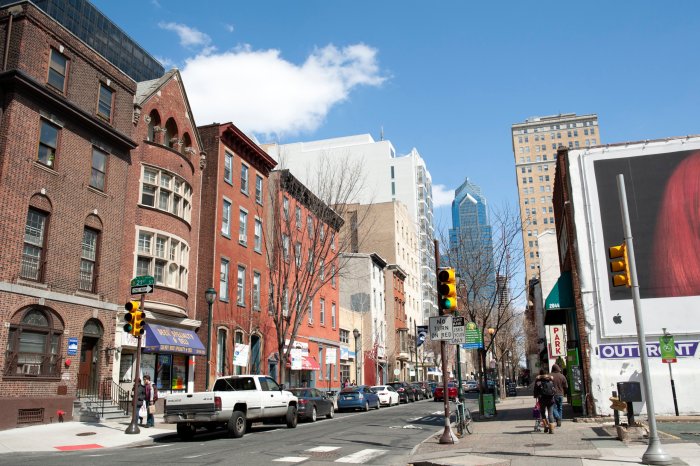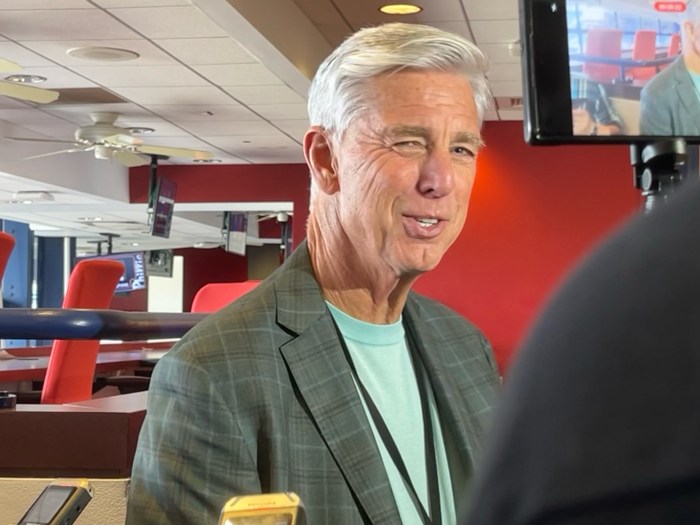By BROOKE SCHULTZ Associated Press/Report for America
Cherelle Parker, a Democrat with a long political history in Pennsylvania, won Philadelphia’s mayoral primary on Tuesday, likely setting her up as the city’s 100th mayor and the first woman to serve in the role.
Parker, 50, who served for 10 years as a state representative for Northwest Philadelphia before her election to City Council in 2015, asserted herself as a leader whose government experience would allow her to address gaping problems with public safety and quality of life in the nation’s sixth-largest city. She will go up against her former council colleague, Republican David Oh, in the Nov. 7 general election.
The win was a disappointment to progressives who rallied around former City Councilmember Helen Gym, who was backed by Vermont U.S. Sen. Bernie Sanders and New York U.S. Rep. Alexandria Ocasio-Cortez.
Parker, of Mount Airy, emerged from a crowded field of five front-runner Democratic candidates vying to replace Democrat Jim Kenney, who is term-limited.
With nearly 90% of the vote counted early Wednesday, Parker, with 33% of the tally, held an advantage of more than 20,000 votes over former City Controller Rebecca Rhynhart (23%) and Gym (21%). Real estate broker and former council member Allan Domb (12%) and grocer Jeff Brown (9%) trailed the three women.
North, West, Southwest and parts of Northwest Philadelphia were integral to Parker’s victory. In many of those wards, she garnered more than 50% of the vote, reaching 70% in West Oak Lane and East Mount Airy.
The Philadelphia race serves as the latest barometer of how residents of some of the nation’s largest cities hope to emerge from the pandemic, which heightened concerns about crime, poverty and inequality. The results have sometimes been tumultuous in other parts of the country, leading to the defeat of the incumbent mayor of Chicago in February and the ouster of San Francisco’s district attorney last year.
Parker pledged to “stop the sense of lawlessness that is plaguing our city” by putting hundreds more officers on the street to engage in community policing. Parker pushed for officers to use every legal tool, including stopping someone when they have “just cause and reasonable suspicion.”
She received support from members of the Philadelphia delegation in the House, as well as members of Congress. She was also backed by the Building Trades Council, an influential coalition of construction-related unions, and a number of Democratic wards in the city, and Kenney said he had cast his ballot for her.
In another race Tuesday, Voters in Allegheny County, which encompasses the state’s second largest city of Pittsburgh, picked sitting state lawmaker Sara Innamorato as their Democratic nominee to face the lone Republican contender, Joseph Rockey, in the November general election. Unlike in the Philadelphia mayor’s race, the primary winner will not necessarily be the person most likely to fill the county executive’s seat.
“Allegheny County, I’m going to make one promise to you: I will build a team of leaders who will usher in the future of this region and build a more equitable and just county,” she said at a campaign event Tuesday, asking supporters to enjoy the victory and recharge. “We better get ready, because we have a lot of work to do.”
Our Revolution, a movement born during Sanders’ 2016 presidential race and now one of the largest progressive organizations in the country, had endorsed Innamorato — a win for the movement, even with its loss in the mayoral primary.
Associated Press video journalist Tassanee Vejpongsa in Philadelphia and Metro reporter Jack Tomczuk contributed to this report.



